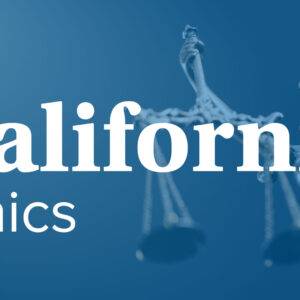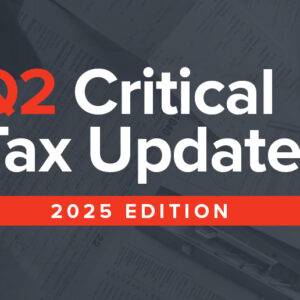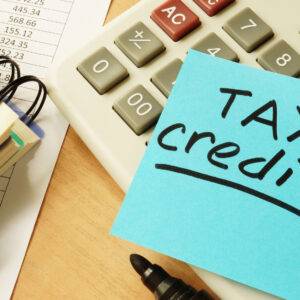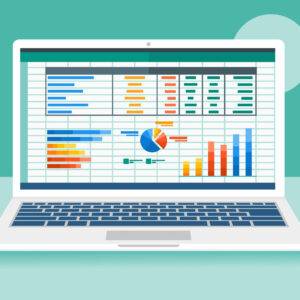WESTERN CPE BLOG
Providing the latest tax news, information, and updates for tax and finance professionals
How to Become a CPA Without an Accounting Degree: A Comprehensive Guide

The dream of becoming a Certified Public Accountant (CPA) often conjures images of rigorous accounting courses and an intensive focus on numbers. But what if you don’t have a degree in accounting? Can non-accounting majors take the CPA exam and become a CPA without an accounting degree? The answer is a resounding YES. With the right guidance, you can maneuver through the educational labyrinth to fulfill CPA requirements even without an accounting background.
Understanding the CPA Requirements
Firstly, let’s clarify that a bachelor’s degree is generally a prerequisite. This degree doesn’t have to be in accounting, but you will need additional college credits beyond your undergraduate coursework to meet education requirements mandated by state boards.
CPA candidates must achieve at least 150 credit hours throughout their academic career. Most bachelor’s degrees cover about 120 credit hours, leaving you with 30 additional hours to earn. Many states require specific upper-level accounting classes and general business courses as part of these 150 hours.
But for those without an accounting degree, these credit hours can be earned through a variety of paths, including graduate level business degrees or additional undergraduate courses.
Business Environment and Upper-Level Courses
Classes focusing on the business environment, econ, corporate accounting, and business administration can all count toward the educational requirements. These courses not only provide the knowledge you’ll need to pass the Uniform CPA Examination but also prepare you for a career path that can span various sectors from public accounting to management accountants roles in multinational corporations.
International Certified Professional Accountants (ICPA)
For those aspiring for a more global reach in the accounting field, becoming an International Certified Professional Accountant (ICPA) is an option. The same general rules apply for non-accounting majors, although there may be additional requirements depending on the country in which you seek certification.
CPA Exam Structure
The Uniform CPA Examination, governed by the American Institute of Certified Public Accountants (AICPA), is a formidable test divided into four sections:
-
Auditing and Attestation (AUD)
-
Business Environment and Concepts (BEC)
-
Financial Accounting and Reporting (FAR)
-
Regulation (REG)
Each section consists of multiple choice questions and task-based simulations that assess your technical competence in accounting and related fields. Preparing for the CPA exam without an accounting degree may sound like a herculean task, but with a well-organized study schedule and reliable CPA review courses, it’s entirely doable.
Work Experience Requirements
Beyond the exam and educational milestones, CPA candidates must fulfill work experience requirements. The specifics vary from state to state, so it’s imperative to check with your local State Board of Accountancy.
Generally, you’ll need a minimum of one to two years of professional experience in an accounting or finance role under the supervision of a CPA. This ensures you possess not only the skills required for the CPA exam but also the practical acumen needed in the accounting field.
Ethics Exam
In addition to the CPA examination, many states require candidates to pass an ethics exam, such as the AICPA Ethics Exam, to ensure their moral suitability for the profession. This often includes understanding the National Association of State Boards of Accountancy (NASBA) code of conduct.
Is it Worth it?
Given the flexibility in educational requirements and the multiple career paths open to CPAs, it’s certainly possible for finance majors, business administration graduates, or even those with unrelated degrees to become accounting professionals.
Salary and Career Paths
The CPA certification opens doors to a multitude of career paths. Whether you aim to work in a public accounting firm, the finance department of a corporation, or as a management accountant in a manufacturing company, the CPA license is a strong credential. The salary and benefits are often substantially higher for CPAs than for those without the certification.
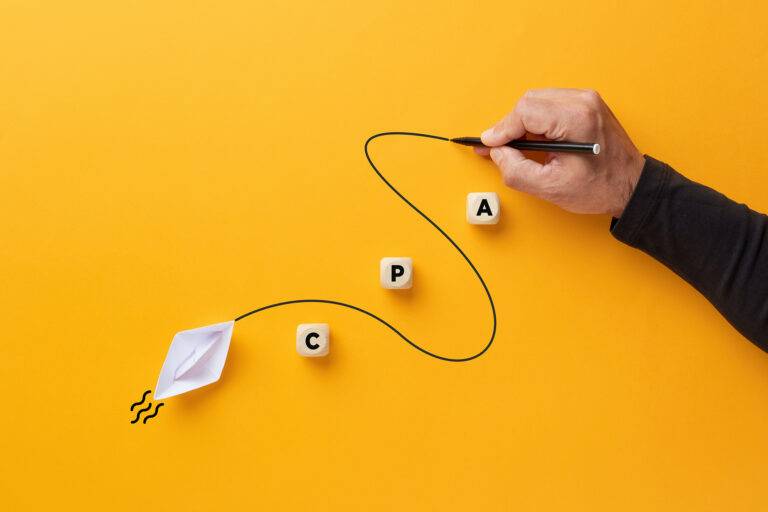
What if I Don’t Even Have a Bachelor's Degree?
Can you become a CPA without a degree at all? The answer is generally no. Almost all states require at least a bachelor’s degree to start the CPA certification process. However, you can work in many accounting roles without a CPA license. Jobs in auditing, bookkeeping, or even lower-level corporate accounting positions are often available to those without a CPA license.
Alternate Accounting Certifications
If CPA seems like a tall order, various accounting certifications exist that don’t require a degree. Certifications like Certified Management Accountant (CMA), offered to IMA members, or Certified Internal Auditor (CIA) may offer alternative pathways into the accounting field without the stringent requirements of CPA.
Getting Your First Accounting Job
You can also gain accounting experience without a degree through internships or entry-level roles. Many accounting firms offer roles for students or those in the early stages of their careers who don’t yet have extensive educational qualifications.
Tips for Non-Accounting Majors
-
Early Planning: Begin mapping out your CPA journey as early as possible. Keep track of state board requirements and plan how to accumulate the 150 credit hours.
-
Engage in CPA Review: Take advantage of CPA review courses and materials. Many CPAs swear by these resources, stating they were crucial to passing the CPA exam.
-
Networking: Join accounting associations and participate in webinars and workshops. Networking can not only help you understand the profession better but can also provide job opportunities.
Conclusion
Becoming a CPA without an accounting degree may require an extra measure of dedication and strategic planning. However, it’s far from impossible. With a clear understanding of the CPA exam structure, education and work experience requirements, and what career paths lie ahead, you can pave your way to becoming a CPA even without a background in accounting.
-
Self-Study
Ethics for California
$116.00 – $136.00 Select options This product has multiple variants. The options may be chosen on the product page -
Webcast
Q2 Critical Tax Updates
$98.00Original price was: $98.00.$49.00Current price is: $49.00. Add to cart -
Self-Study
Individual Income Tax Credits & Due Diligence Requirements
$145.00 – $175.00 Select options This product has multiple variants. The options may be chosen on the product page -
Self-Study
Become an Expert on Lookup Functions
$58.00 – $78.00 Select options This product has multiple variants. The options may be chosen on the product page -
Self-Study
Accountant Ethics for Delaware
$116.00 – $136.00 Select options This product has multiple variants. The options may be chosen on the product page -
Self-Study
Error-Proofing Excel Spreadsheets
$145.00 – $175.00 Select options This product has multiple variants. The options may be chosen on the product page

